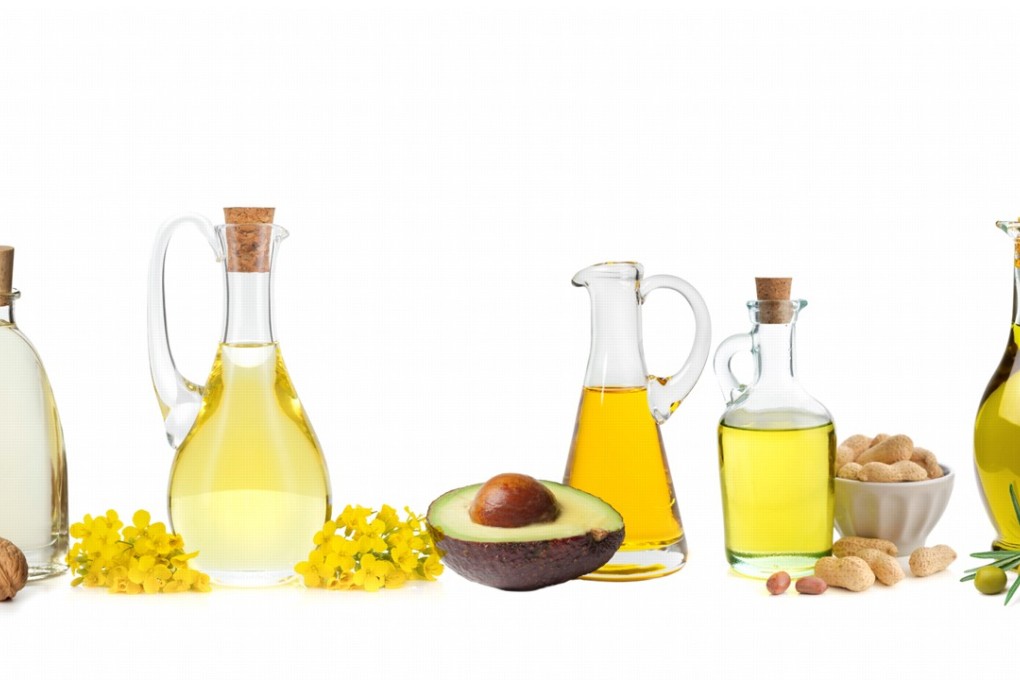Five of the healthiest cooking oils, and how they give your body a boost
The health benefits of cooking oils can be a complicated subject: some are better at lowering cholesterol while others might become ‘bad fats’ when exposed to high heat. We list our top five, based on input from food experts

With so many varieties of cooking oil available, choosing the healthiest option is difficult. New studies make contradictory claims that can leave a consumer confused about the best choice, while health websites make assertions that sometimes have little real evidence to back them up.
The good news is that all vegetable oil is cholesterol free – only animal products have cholesterol – and some contain the “good fats” MUFA and PUFA (mono- and polyunsaturated fats). Oils with high amounts of MUFA include olive and peanut, while those with high amounts of PUFA include sunflower, canola and walnut.
The nine best veggie burgers in Hong Kong, chosen by a meat-eater and a vegetarian
However, all oils have the potential to become a “bad fat”. When a fat or oil reaches its smoke point – the temperature at which it or smokes – it can turn into a trans fat. Oils such as canola or peanut, which have high smoke points, are therefore recommended for cooking at high temperature. Lower temperature searing or grilling can be done with avocado, sunflower or rice bran oil. In salads, the best oils to use are sesame, walnut, hemp and soybean.

Denise Fair, a dietitian at Central Health Medical Practice in Hong Kong’s Central district, says she gets asked a lot of questions about oils.
“Since they are classified differently, understanding what is healthy can be complicated. It gets further complicated when you look how the oils are processed. A good quality canola oil is recommended for high temperature cooking, but a poorly processed canola oil may not be considered healthy,” she says.
“Similarly with olive oil. Extra virgin olive oil is less processed, has slightly more nutrients and is much better tasting than regular olive oil. Then come GMOs [genetically modified organisms], which is enough to make anyone’s head spin.”